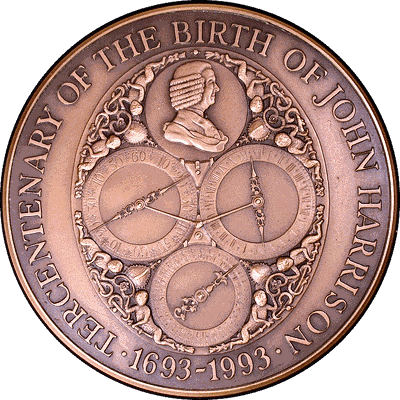
In 1993 we come to the tercentenary of the birth of John Harrison.
Born in 1693, the son of a carpenter, and by trade a self educated clockmaker; he designed and constructed highly innovative chronometers in an effort to win the famed ‘Longitude prize’ of £20,000 first offered in 1714.
Constructed between 1730 and 1735, ‘H1’ is essentially a portable version of Harrison's precision wooden clocks. It is spring-driven and only runs for one day (the wooden clocks run for eight days). The moving parts are controlled and counterbalanced by springs so that, unlike a pendulum clock, H1 is independent of the direction of gravity.